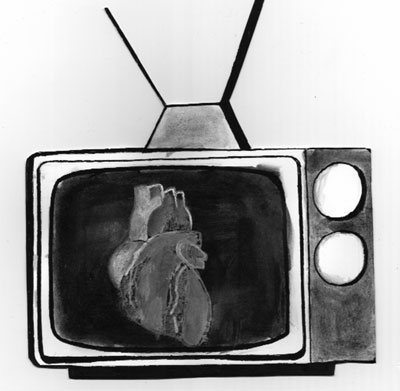All Nonfiction
- Bullying
- Books
- Academic
- Author Interviews
- Celebrity interviews
- College Articles
- College Essays
- Educator of the Year
- Heroes
- Interviews
- Memoir
- Personal Experience
- Sports
- Travel & Culture
All Opinions
- Bullying
- Current Events / Politics
- Discrimination
- Drugs / Alcohol / Smoking
- Entertainment / Celebrities
- Environment
- Love / Relationships
- Movies / Music / TV
- Pop Culture / Trends
- School / College
- Social Issues / Civics
- Spirituality / Religion
- Sports / Hobbies
All Hot Topics
- Bullying
- Community Service
- Environment
- Health
- Letters to the Editor
- Pride & Prejudice
- What Matters
- Back
Summer Guide
- Program Links
- Program Reviews
- Back
College Guide
- College Links
- College Reviews
- College Essays
- College Articles
- Back
Damaging Effects of The Images in Advertising
Sex, Pizza. These two things bear no relation to each other, yet they are used together in advertising. Adverts like this use gender stereotypes to create their ‘art’ which is then allowed to be shown on television for all eyes to see; there’s no age rating on adverts. These adverts damage people. They show images of how society expects us to be; muscly men with six-packs, or skinny women. It is well known that the media has a profound effect on people, especially teenage girls; these images which are shown on our screens can contribute to eating disorders. So tell me why these adverts should be allowed to be shown?
These adverts can be damaging to people by giving them unrealistic expectations of what they should look like and how they should act, to illustrate this; the Pizza Hut Jessica Simpson advert uses irrelevant sexualisation of women and is unrelated to the product they are selling which is pizza, you wouldn’t expect to walk in to a restaurant to order a pizza and someone dressed in revealing clothes to come and sing about it, it’s nothing to do with sex, yet the advert its sexualizing the product. Contrary to common belief, it’s not just women who suffer from the gender stereotypes in adverts; in the Diet Coke Vintage advert the man is shown as being strong and a builder who takes off his top for no reason which is irrelevant sexualisation and a ‘torso parade’ of men. Perfume adverts are often the biggest perpetrators of this; they often show unrelated images that are nothing to do with their product to make people want to buy their product. The Burger King ‘I am Man’ advert is also very gender stereotypical; at one point in the song the man sings “I’m too hungry to settle for chick food” when a plate with a salad leave is placed in front of him. This advert portrays man as animals proved by the line “HEAR ME ROAR” in the song, it suggests men are dominant and in control whereas the few women that are shown in the advert are depicted as giggly and subordinate to men. Yes, Advertising is an art but just because it’s an art doesn’t mean it can show these images; the Emmys awarded what they viewed as the best adverts, none of these used gender stereotypes. So why do some advertisers feel the need to use stereotype both men and women in their adverts which are supposedly ‘art’. As well as perfume adverts using sexulisation in their adverts, car producers often do the same. The ‘Jaguar Gorgeous’ advert flicks between images of the car and of women so you cannot work out what the voice over, which is done by a man, is talking about, the car, or the women. It makes the product seem exclusive and it is imperative, ‘Gorgeous will pay for itself in the first five minutes’, it also shows parts of people, dismemberment, which objectifies the person in question whether it is a woman or a man.
On the other hand, Advertising is a form of art and therefore it should be freely expressed, you wouldn’t say that a painting should have limitations; the whole point of art is free expression so by regulating what they can show you are extinguishing their freedom which makes art what it is. Advertisers do not set out to make adverts that will offend people they simply want to sell a product; although some people may be offended by them they might just be excessively sensitive and do not understand the point of freedom of speech. When advertisers make an advert they are aiming to sell a product and make their advert memorable and stand out from the rest, why should it matter if they may use a stereotype in their adverts, everyone uses stereotypes in day to day life so why should advertising be regulated to the extent that they can’t show things to make their adverts stand out. No one should believe that these adverts are a fair representation of life, and I doubt that anyone does believe that; they are just images on a screen and people should not allow themselves to be so easily offended by them.
Therefore I believe, as do many others, that gender stereotyping in adverts is pointless and should be banned. Yes, this does involved limiting and regulating what the media can show but things like that already exist in the form of super injunctions which stop people from writing what they feel about other people. Although these adverts do not set out to offend people, that is the consequence of what they are showing and therefore they should be banned and regulated before we become so numbed by our constant exposure to these stereotypes that we allow almost anything to be shown on our screens.

Similar Articles
JOIN THE DISCUSSION
This article has 0 comments.
